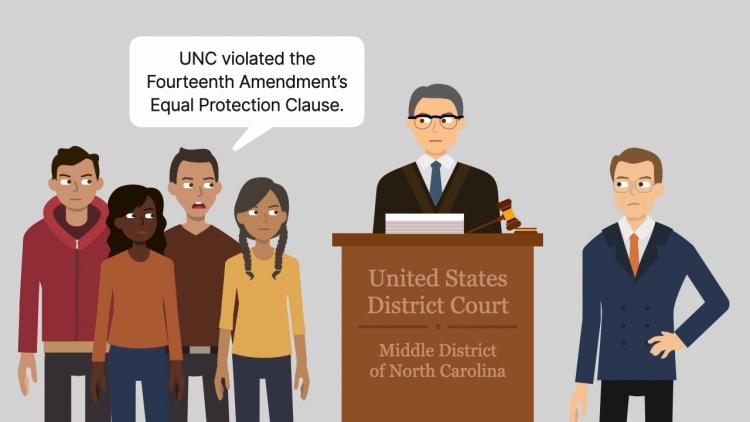Students for Fair Admissions, Inc. v. President and Fellows of Harvard College
United States Supreme Court
600 U.S. 181 (2023)
- Written by Tammy Boggs, JD
Facts
Harvard College and the University of North Carolina (together, the universities) (defendants) were old, prestigious colleges that were highly selective in their admissions processes. The universities considered race as one factor among a list of factors, including academic performance, extracurricular activities, and quality of personal essays. Belonging to certain minority races represented a “plus” to the universities, which sought to achieve a diverse student body and related educational benefits. The universities tracked their student bodies by racial categories, such as Asians, Hispanics, and African Americans, and attempted to prevent reductions in certain racial categories from year to year. There was evidence that consideration of race had resulted in some reductions in Asian students or rejection of Asian applicants who would have been accepted if race had not been considered. Students for Fair Admissions (plaintiff) sued each university separately, arguing that the universities’ admissions programs violated the Equal Protection Clause and Title VI of the Civil Rights Act. The United States Supreme Court agreed to review the cases.
Rule of Law
Issue
Holding and Reasoning (Roberts, C.J.)
Concurrence (Thomas, J.)
Concurrence (Gorsuch, J.)
Dissent (Sotomayor, J.)
Dissent (Jackson, J.)
What to do next…
Here's why 908,000 law students have relied on our case briefs:
- Written by law professors and practitioners, not other law students. 47,100 briefs, keyed to 996 casebooks. Top-notch customer support.
- The right amount of information, includes the facts, issues, rule of law, holding and reasoning, and any concurrences and dissents.
- Access in your classes, works on your mobile and tablet. Massive library of related video lessons and high quality multiple-choice questions.
- Easy to use, uniform format for every case brief. Written in plain English, not in legalese. Our briefs summarize and simplify; they don’t just repeat the court’s language.





